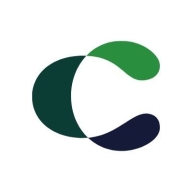

Contrast Security Assess and GitLab compete in the application security and DevOps integration market. GitLab appears to have an advantage owing to its comprehensive DevOps features.
Features: Contrast Security Assess offers real-time application security monitoring, automated vulnerability detection, and an interactive application security testing (IAST) feature that minimizes false positives. GitLab, on the other hand, provides extensive DevOps capabilities, including CI/CD pipelines, repository management, and built-in security, appealing to organizations needing a broadened platform with its seamless integration and automation.
Room for Improvement: Contrast Security Assess could enhance its user interface and expand beyond security-focused applications. It might also improve integration with third-party tools. GitLab could work on optimizing its performance for large-scale operations, streamline some complex features, and reduce pricing to appeal to smaller organizations.
Ease of Deployment and Customer Service: Contrast Security Assess offers cloud-based deployment with highly rated support services focused on personalized assistance. GitLab allows for both on-premises and cloud-based configurations and offers comprehensive documentation and support teams, excelling in deployment versatility.
Pricing and ROI: Contrast Security Assess typically has lower setup costs, making it attractive for security-focused organizations seeking cost efficiency. GitLab, with its higher price, justifies the expense with its broad range of features, offering significant ROI for enterprises with diverse DevOps needs.
| Product | Market Share (%) |
|---|---|
| GitLab | 2.0% |
| Contrast Security Assess | 1.3% |
| Other | 96.7% |

| Company Size | Count |
|---|---|
| Small Business | 2 |
| Midsize Enterprise | 3 |
| Large Enterprise | 6 |
| Company Size | Count |
|---|---|
| Small Business | 36 |
| Midsize Enterprise | 10 |
| Large Enterprise | 46 |
Contrast Security is the world’s leading provider of security technology that enables software applications to protect themselves against cyberattacks, heralding the new era of self-protecting software. Contrast's patented deep security instrumentation is the breakthrough technology that enables highly accurate assessment and always-on protection of an entire application portfolio, without disruptive scanning or expensive security experts. Only Contrast has sensors that work actively inside applications to uncover vulnerabilities, prevent data breaches, and secure the entire enterprise from development, to operations, to production.
GitLab offers a secure and user-friendly platform for CI/CD pipeline management, code repository control, and collaboration, enhancing development speed and efficiency. It facilitates automation with extensive customization and tool integration, ideal for DevOps processes.
GitLab supports source code management, version control, and collaborative development. It's frequently used in CI/CD processes to automate builds and deployments while integrating DevOps practices. GitLab allows companies to manage repositories, automate pipelines, conduct code reviews, and maintain development lifecycles. The platform supports infrastructure and configuration management, enabling efficient code collaboration, deployment automation, and comprehensive repository handling. Many organizations commit and deploy developed code using GitLab's capabilities.
What are GitLab's most valuable features?In specific industries, GitLab serves as a backbone for source code management and CI/CD implementation. Companies leverage its capabilities for infrastructure management and deployment automation, thus streamlining project delivery timelines. Its ability to handle configuration management and code repositories effectively aids in maintaining development lifecycles, making it a preferred choice for organizations committed to enhancing their DevOps practices.
We monitor all Application Security Tools reviews to prevent fraudulent reviews and keep review quality high. We do not post reviews by company employees or direct competitors. We validate each review for authenticity via cross-reference with LinkedIn, and personal follow-up with the reviewer when necessary.